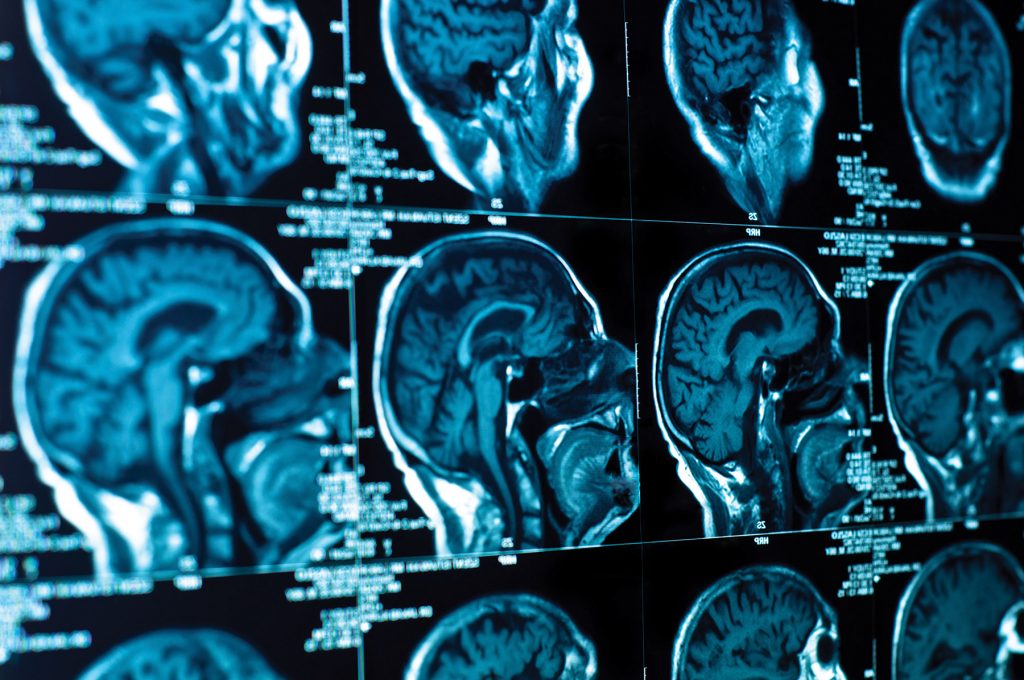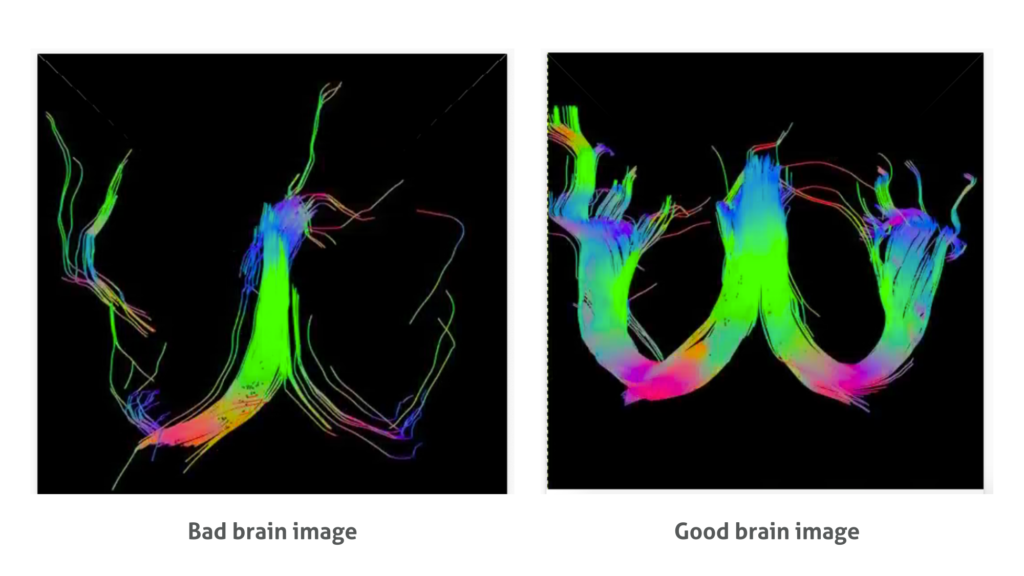Posted August 25th 2020
Understanding the brain in health and disease
Neuroimaging plays an important role in medical research.
Using cutting-edge methods, scientists can now produce 3D images of neural networks in the living brain.

These can give valuable insights into the way the brain changes with disease and can aid our understanding of neurological and psychiatric conditions.
Increasingly, ‘big data’ projects are using computers to automatically generate high numbers of images. However, these are not always produced correctly.
Public contribution to neuroscience research
NeuroSwipe is a prototype website developed by students at the National Software Academy in collaboration with a team based in the Cardiff University Brain Research Imaging Centre (CUBRIC).
Using NeuroSwipe, community volunteers can learn about the basics of communication within the brain, advances in neuroimaging methods and how brain imaging is helping researchers to understand brain health.
Volunteers are also able to complete a short training module in which they learn to sort brain images into two different groups:
- ‘Bad’ brain images
- ‘Good’ brain images
Upon completing the training, users are free to sort images generated during actual research studies.
Sorting operates in a similar way to a popular dating app. Volunteers swipe left for images classed as bad and right for images they deem to be good.

Currently, the results from NeuroSwipe contribute to a study led by Dr Judith Harrison evaluating the effects of genetic risk for Alzheimer’s disease on the structure of the brain.
Dr Harrison explained; “Researchers rely on computers to draw parts of the brain from scans. They don’t get it right 100% of the time.
We need humans to check what the computers have produced. As we now work with very large studies, we have thousands of images – too many for one person to review!
Depending on levels of engagement, there is scope to expand NeuroSwipe further, and results could be used in a range of different studies investigating brain health.
“So far, around 50 people have taken part. However, we are hoping to increase this number over the coming months.
“During the COVID-19 pandemic, volunteering in the community is not always possible. NeuroSwipe offers a great way for members of the public to provide a helping hand to scientific research from home.”
To take part in NeuroSwipe:
Sign up now and receive new blog posts to your inbox.

